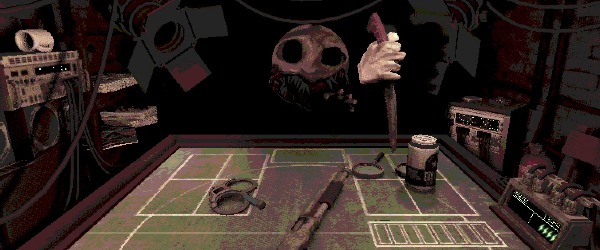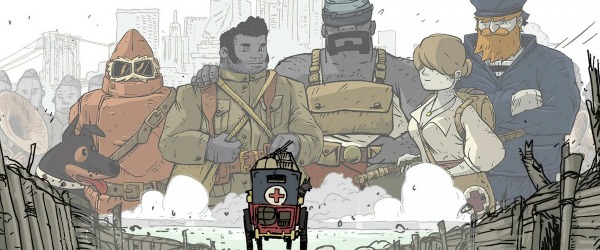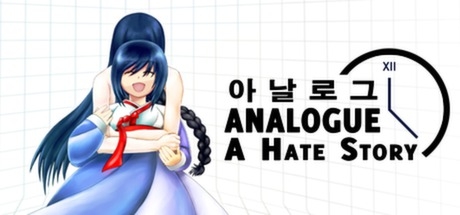
Analogue: A Hate Story (PC) - Review
by Karl Koebke , posted on 20 June 2012 / 4,632 ViewsI've always glanced at the visual novel genre with pensive curiosity. It's not really something that releases on Western shores often and therefore there aren’t a lot of opportunities to try it out. So when I heard about Analogue: A Hate Story, with its unique take on storytelling and player perspective, I couldn't help but try it out.
Let's get this out of the way from the get-go: do you like reading? No, I don't mean reading character dialogue or little snippets of wisdom from villages in quaint JRPG towns. The bulk of your time in Analogue is spent just straight up reading log files written by dead people. If that's just far too much effort for you to handle then run away from here and never look back. Okay, now that we’ve got that warning out of the way let’s get to the game itself.
Analogue: A Hate Story is played in what some call the “0th Person”. You play as yourself, an anonymous user at a computer who has been tasked with downloading log files from a long-dead colonization ship that dropped out of contact thousands of years ago called the Mugunghwa. At first you start out at a classic Linux-type terminal with a couple different text commands you can access, like “Enable_ai” and “su”. Using the Enable_ai command you can start up an AI program and quit out of the terminal to enter a point and click mouse based interface.
This is where the only two “live” characters come in. As you read through all of the logs left by the long dead crew you’ll be able to see comments from one of two different AI programs. Oftentimes they’ll open up more logs when you show interest in one crew member or another so you can’t just ignore them if you want to progress. Other times the AI program will give you a simple choice between two answers, asking what you think about the entry you've just read. Having only two possible answers means that it's pretty easy to obtain the different endings and provoke the AI to reacting per your wishes, which takes some of the challenge out of the gameplay.
The Mugunghwa’s log entries you’ll be reading run the gambit from love letters to a wife, or prostitute, to political musings, or the diary writings of a girl thrown into a misogynistic hell-hole. This opens up a lot of issues for you to weigh in on. Learning about the strange culture of Mugunghwa and how it came to be that way, as well as how people live in such an emotionally stifling environment is genuinely interesting. You can only have one AI program enabled at a time, and both of them have different takes on what happens in the logs (as well as the final fate of the crew members), so it’s meaningful to switch between the two of them often in order to get both of their takes on events.
As you work through the log files you’ll gain access to more commands by obtaining the administrator password for the terminal. This will allow you to execute certain ship maintenance commands that are required for opening up yet more files and for puzzle solving. The sections where you play around at this fake terminal are some of the most classically game-like segments in Analogue, as you attempt to work out puzzles in order to move forward, but they aren't very user friendly. Modern versions of Linux terminals often have shortcut keys you can use to make your life easier. These include pressing the up arrow to go back to the last command you entered, or pressing tab to finish off the command you’re typing in. It would've been preferable if these kinds of features were in Analogue’s terminal, as it would have made the commands you need to utilise for switching between AI programs far less cumbersome.
Analogue’s visuals are simple but fit the setting perfectly. Most of the time you’re just working through log files on a white background. When you click on the icon to see what your AI partner thinks she’ll take center stage, with different still images showing up to demonstrate different emotional reactions. However, the sterile background is a constant, even during these sequences. It's not the most exciting presentation in gaming, to say the least, but it puts the important things front and center without distractions. It's also worth noting that there is no voice acting, and the music will never really catch your attention. Indeed, the presentation as a whole is the epitome of austere.
How long it takes you to play through Analogue will depend entirely on how you play and how quickly you read. I read through every entry I was given, as well as all of the AI reactions, and completed four of the five endings, and all of that only took me three and a half hours. Most of your time in Analogue will be spent reading, but once you've read through each log things speed up dramatically and you can blast through the game very quickly in subsequent run-throughs. That said, there are some neat little tricks required to get the AIs to see eye-to-eye and come to terms with their differences, and thus get the fabled “harem ending”.
I've attempted to write as much about Analogue as one can without spoiling the story, which is naturally the main reason to play a title like this. Suffice it to say that even though the user’s input is limited and the presentation is simple I definitely enjoyed reading through all of the logs. Analogue is unique, especially in its approach to misogyny and how it relays events from the perspective of ordinary people stuck in a crazy situation (as opposed to the archetypal super-powered video game character). There are no easy solutions on Mugunghwa, because everything you’re reading has already come to pass, and you're just an observer. Analogue obviously won’t be for everyone, but some will find its unique approach to storytelling and gameplay refreshing. One thing's for sure, you’ve almost certainly never played anything quite like it.
Analogue: a Hate Story was reviewed based on a digital copy provided by PR on behalf of IndieCade
VGChartz Verdict
6.8
Decent


























